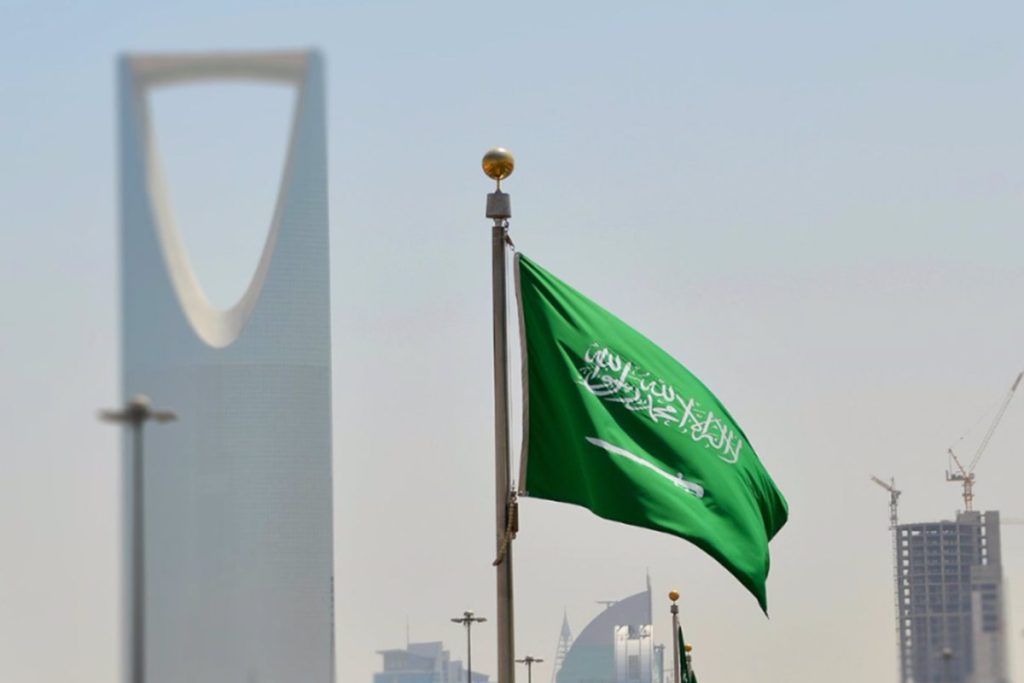+973 3373 3381
Phone Number
setupinsaudiarabia@gmail.com
Email Address
Mon - Thu: 8:00 - 5:00
Working Hours
Phone Number
Email Address
Working Hours
August 14, 2025

Introduction – Why NEOM & Qiddiya Are Just the Beginning
The GCC Smart City Ecosystem at a Glance
Why NEOM & Qiddiya Are Perfect Launchpads for GCC Expansion
Regional Market Analysis – UAE, Bahrain, Qatar, Oman, Kuwait
Identifying the Right Smart City Niches Across the GCC
Legal & Regulatory Landscape for Regional Expansion
Funding & Capital Raising for Multi-Country Operations
Building Strategic Partnerships Across the GCC
Technology Adaptation for Different GCC Markets
Hiring & Talent Mobility Across Borders
Smart City Procurement & Tender Strategies
Leveraging Saudi’s Reputation as a Tech Leader in the GCC
Scaling Your Operations – Logistics, Tax, and Compliance
Risk & Opportunity Mapping Across GCC Markets
Case Studies – Saudi Startups That Successfully Expanded Regionally
Your First 12-Month Expansion Roadmap
SetupinSA’s Role in Your GCC Expansion Journey
Conclusion – Turning a Saudi Mega-Project Win into Regional Dominance
20 FAQs for Businesses Expanding from NEOM/Qiddiya to GCC Smart Cities
NEOM and Qiddiya are two of Saudi Arabia’s most ambitious projects—representing multi-billion-dollar investments in urban innovation, entertainment, sustainability, and digital transformation. But while securing a foothold in these mega-projects is a remarkable achievement, the real growth story begins when you scale your success across the GCC region.
The Gulf’s smart city sector is booming, with UAE’s Smart Dubai, Bahrain’s Smart City Framework, and Qatar’s Lusail City leading the way. These markets are interconnected, culturally aligned, and economically collaborative—making them a natural progression for Saudi-born tech ventures.
Key GCC Smart City Projects (2025):
| Country | Major Smart City Projects | Investment Value (USD) | Focus Areas |
|---|---|---|---|
| Saudi Arabia | NEOM, Qiddiya, The Red Sea, Amaala | $500B+ | AI, IoT, green energy, tourism tech |
| UAE | Smart Dubai, Masdar City, Expo Legacy Projects | $300B+ | Blockchain, AI, autonomous transport |
| Qatar | Lusail City, Msheireb Downtown Doha | $45B+ | Sustainable mobility, digital governance |
| Bahrain | Bahrain Bay, Smart Villages | $15B+ | FinTech, digital identity |
| Oman | Duqm Smart Port, Knowledge Oasis Muscat | $25B+ | Logistics tech, e-government |
| Kuwait | Silk City | $120B+ | Trade infrastructure, smart housing |
Market Potential:
The GCC’s combined smart city market value exceeds $1 trillion over the next 15 years—meaning that even a small market share could mean hundreds of millions in revenue for well-positioned startups.
Winning contracts in NEOM or Qiddiya signals that your business can operate at the highest standards of tech, innovation, and compliance. This builds instant credibility in neighboring GCC markets.
Benefits of Using NEOM & Qiddiya as Launchpads:
Government Recognition – Partners see your proven ability to work with Saudi’s biggest initiatives.
Cross-Market Brand Power – “Powered by NEOM” or “Qiddiya Partner” status boosts trust.
Operational Readiness – Experience in large-scale project management gives you a competitive edge.
Funding Leverage – Easier to raise investment with mega-project credentials.
Each GCC market has unique strengths. Your expansion strategy must be tailored.
| Market | Expansion Opportunity | Key Consideration |
|---|---|---|
| UAE | Blockchain, AI, FinTech | Strong competition, but investor-friendly laws |
| Bahrain | FinTech, e-governance | Small market, good for testing products |
| Qatar | Sustainable mobility, smart homes | Align with FIFA 2022 legacy infrastructure |
| Oman | Logistics tech, port digitization | High growth in trade facilitation tech |
| Kuwait | Infrastructure management, smart housing | Strong state-led mega-projects |
High-demand sectors for expansion:
Urban Mobility & Autonomous Transport
Smart Grid & Renewable Energy Tech
AI-Powered Governance Platforms
Tourism & Entertainment Tech
IoT for City Management
Tip from SetupinSA: Don’t try to dominate all sectors. Pick one niche and own it before diversifying.


Expanding into GCC smart city markets isn’t just about having the right product—it’s about who you know. Relationships with local government bodies, mega-project developers, and established corporations are critical.
Key steps to secure partnerships:
Attend regional smart city summits (e.g., Future Investment Initiative, Cityscape Global).
Collaborate with local tech accelerators for a soft landing.
Leverage Saudi, UAE, and Qatar chambers of commerce to connect with business councils.
SetupinSA Insight: Start partnerships before you launch—this builds credibility and accelerates trust in markets where relationship capital is often as important as financial capital.
Every GCC country has its own licensing, data protection, and foreign ownership rules—and these can make or break your expansion.
Key compliance areas:
Company Formation Rules – In Saudi Arabia, the Ministry of Investment (MISA) governs foreign business licensing, while the UAE uses free zones and mainland setups.
Data Protection Laws – Oman and Saudi Arabia now have strict personal data protection laws, critical for AI and IoT businesses.
Sector-Specific Approvals – Certain industries like transport tech or fintech require extra approvals from sector regulators.
Pro tip: Partner with SetupinSA’s compliance experts to create a multi-country regulatory roadmap before you invest.
The GCC governments are offering unprecedented financial incentives to attract smart city innovators.
Available opportunities include:
Grants & R&D subsidies from Saudi’s National Industrial Development and Logistics Program (NIDLP).
Tax holidays and zero customs duties in UAE free zones.
Government-backed venture capital in Qatar’s Free Zones Authority.
Innovation challenge funding in Oman for IoT, green energy, and AI.
💡 Investor Tip: Investors in GCC markets tend to favor proof-of-concept-ready companies—come prepared with a working demo or pilot data.
Once you’ve gained traction in NEOM or Qiddiya, scaling into other GCC smart cities requires:
Operational duplication strategies – replicate your most successful processes in new markets.
Local talent acquisition – hire in-country managers familiar with municipal tech adoption cycles.
Cross-border logistics – especially for hardware-heavy solutions like IoT devices.
SetupinSA Note: Don’t expand too fast—opt for a two-country strategy before going GCC-wide.
Your tech must integrate with diverse smart city platforms. For example:
NEOM is building a fully cloud-native urban data platform.
Dubai uses its own Smart Dubai API framework.
Qatar’s Lusail City deploys centralized IoT management hubs.
Action Step: Include a tech interoperability audit in your expansion plan to ensure seamless integration into local infrastructure.
Unlike Western markets where digital ads dominate, in the GCC trust-based marketing is key.
Build a thought leadership profile by speaking at regional conferences.
Publish case studies and whitepapers on Gulf-specific challenges.
Partner with local PR agencies that understand the culture.
Arabic translation is only the start. True localization includes:
UI/UX adaptation for right-to-left reading.
Cultural relevance in visuals and examples.
Regulatory-friendly messaging that avoids political sensitivities.
Map out:
Direct competitors in NEOM/Qiddiya and target GCC cities.
International entrants already operating in these markets.
Areas where you can own a niche—especially where incumbents are slow to innovate.
All GCC smart city projects heavily emphasize sustainability and ESG compliance. Demonstrating environmental responsibility can help you:
Qualify for green financing.
Win government contracts.
Build long-term trust with stakeholders.
Phase 1: Establish Saudi base in NEOM/Qiddiya.
Phase 2: Expand into UAE smart cities (Dubai, Abu Dhabi).
Phase 3: Enter Qatar (Doha, Lusail).
Phase 4: Diversify into Oman, Bahrain, and Kuwait.
SetupinSA Strategy Tip: Use Saudi as your regional HQ—its central location, economic influence, and Vision 2030 agenda make it the perfect launchpad.
Why focus on NEOM and Qiddiya before other GCC smart cities?
They have the largest government backing, advanced infrastructure, and global investor attention.
Can a startup enter without a Saudi partner?
Yes, 100% foreign ownership is allowed in many sectors under MISA licensing, but partnerships speed market access.
What is the average time to get licensed in Saudi?
With professional help, 4–8 weeks for most sectors.
Do I need Arabic-speaking staff?
For business success and compliance ease, yes—at least one senior Arabic-speaking team member is recommended.
What are the top sectors for smart city expansion in the GCC?
Urban mobility, renewable energy, IoT city management, AI governance, and tourism tech.
How much capital is needed to start in NEOM?
Depends on sector, but early-stage tech companies often start with USD $250k–$500k.
Are there tax benefits for foreign companies?
Yes, especially in free zones and under incentive schemes.
Is intellectual property protected in Saudi?
Yes, Saudi has updated its IP laws to meet global standards.
Can I run my GCC operations remotely?
You can, but local presence increases credibility and contract wins.
What’s the biggest mistake foreign startups make?
Not adapting to local business culture and expansion timelines.
Is VC funding accessible for newcomers?
Yes, but showing local traction is key.
Are sustainability credentials required?
Not mandatory, but highly beneficial for mega-project partnerships.
Can a startup serve multiple GCC countries from Saudi?
Yes, Saudi is a strong regional hub.
How competitive is the NEOM market?
High, but niches are still open for specialized solutions.
What is Qiddiya focused on?
Entertainment, sports, tourism, and cultural innovation.
Are foreign tech teams welcomed?
Yes, especially if they train local talent.
How does SetupinSA help in expansion?
We handle licensing, market entry, partnerships, and compliance.
Do GCC governments fund startups?
Yes, via grants, accelerators, and equity programs.
What’s the best way to network in Saudi?
Industry events, business councils, and curated introductions.
How long before seeing ROI in GCC smart cities?
Typically 2–4 years depending on sector and scale.
Do not hesitate to contact us. We’re a team of experts ready to talk to you.
From securing an audited company profile, handling all document attestations, and obtaining approvals from MISAto issuing your Commercial Registration, we handle the entire business setup — quickly, efficiently, and without hassle.
Hassle-free company setup in Saudi Arabia—legal structure, registration, and approvals, all handled for you.
Fast corporate and personal bank account opening with trusted local and international banks.
Stay compliant with VAT, Zakat, and tax filings—we handle it all accurately and on time.
Quick and seamless MISA license approvals for foreign investors to start operations in Saudi Arabia.
Visa processing, renewals, and government approvals—so you can focus on your business, stress-free.
Our expert pro services include visa processing, government relations, & renewals etc.
1. We Understand the Process, So You Don’t Have To
Navigating the regulations in Saudi Arabia can be complex. That’s why our experts handle all the paperwork, approvals, and formalities on your behalf.
2. Tailored Solutions for Every Business
Whether you’re a startup or an international corporation, our services are customized to fit your unique needs.
3. Your Success Is Our Priority
From the moment you contact us, your goals become our mission. We pride ourselves on fast results and exceptional service.